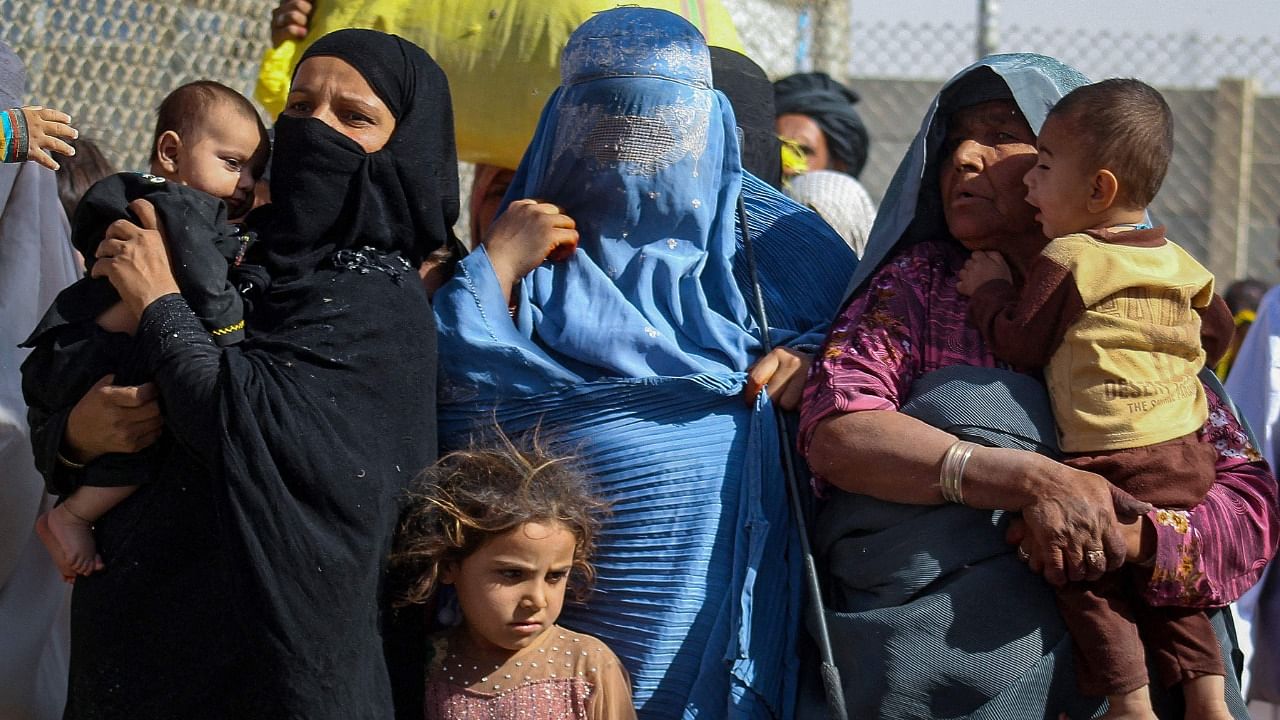
The UN rights chief voiced grave concern Tuesday at the situation in Afghanistan after the Taliban swept into power, saying their treatment of women would mark a "fundamental red line".
Speaking at the opening of an emergency session on Afghanistan, Michelle Bachelet urged the Taliban to honour commitments to respect the rights of women and girls, and of ethnic and religious minorities, and refrain from reprisals.
"The onus is now fully on the Taliban to translate these commitments into reality," she said.
The High Commissioner for Human Rights stressed that indulging in rights violations would "undermine the legitimacy of the perpetrators, both vis-a-vis the people, and also with respect to regional and international institutions and other states."
"A fundamental red line will be the Taliban's treatment of women and girls," she said, urging "respect for their rights to liberty, freedom of movement, education, self expression and employment."
The militants have repeatedly promised a different kind of rule to their brutal regime of the 1990s that saw women confined to their homes, most entertainment banned, and stonings and public executions used as punishments.
But their rebranding is being treated with scepticism, and large crowds continue to mass outside Kabul airport desperately seeking evacuation, terrified of facing life under the Taliban.
Even before the Taliban takeover, the UN says Afghanistan saw a sharp increase in civilian casualties in recent months.
Bachelet said her office had received credible reports of serious violations in places that have been under Taliban control, including summary executions, restrictions of women's rights, blocking girls from attending school and recruitment of child soldiers.
Nasir Ahmad Andisha, the Afghan ambassador to the UN in Geneva appointed under the now collapsed government of ex-president Ashraf Ghani and who continues to represent his country, made clear that he wanted to see strong action.
He urged council members to deliver "a strong message to all parties including the Taliban that abuses and violations of human rights... will have consequences."
Rights groups had called for the council to establish an international fact-finding mission to assess the situation on the ground and seek to document violations, including war crimes and crimes against humanity, with the view to ensuring accountability.
But a draft resolution presented on Monday to the council only recommended that Bachelet present a report on the rights situation in Afghanistan during the main annual council session next March, drawing condemnation.
A number of countries who otherwise would have pushed for the resolution to go further had held back for fear that a stronger response could anger the Taliban and jeopardise access for evacuations from the country, according to several diplomatic sources.